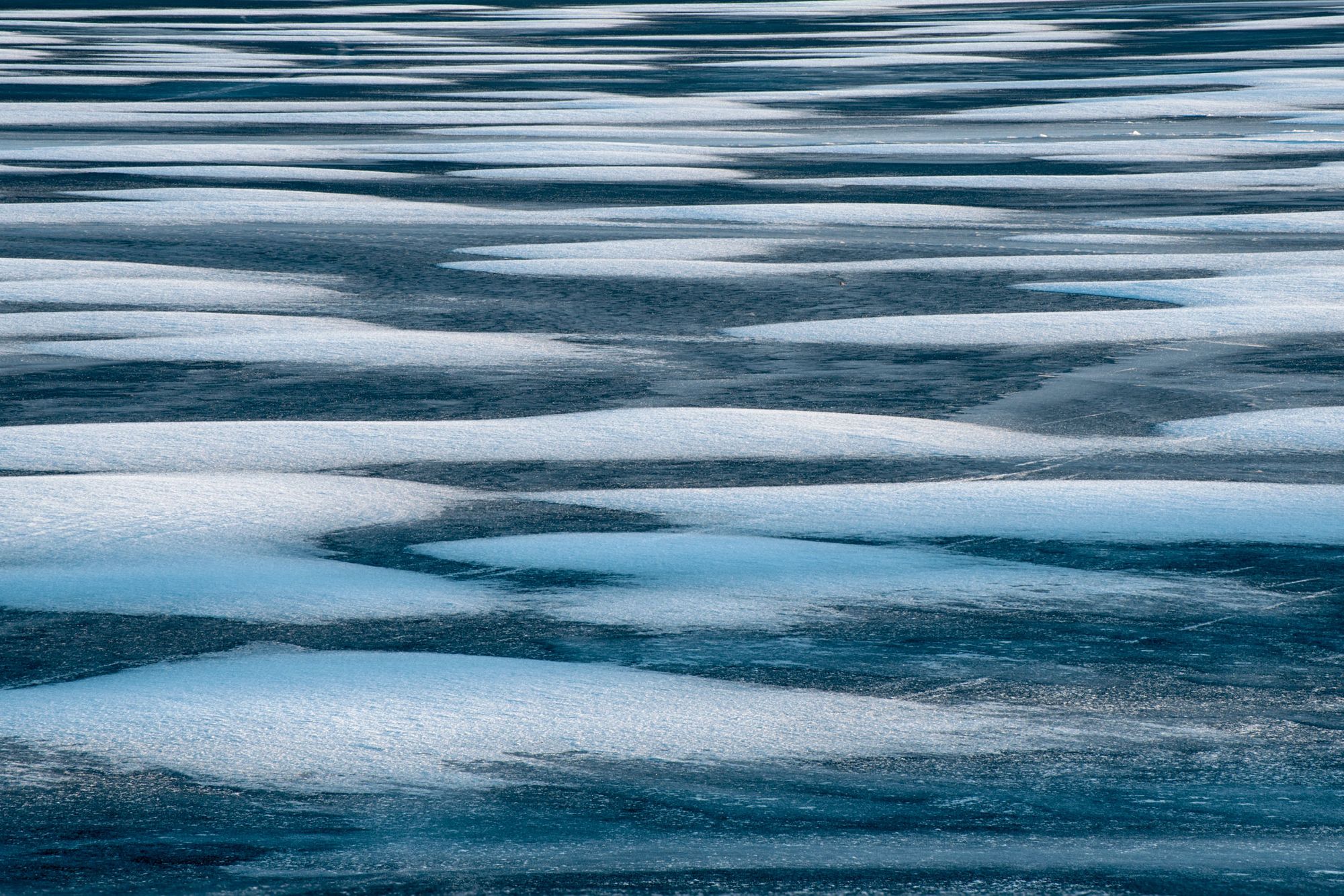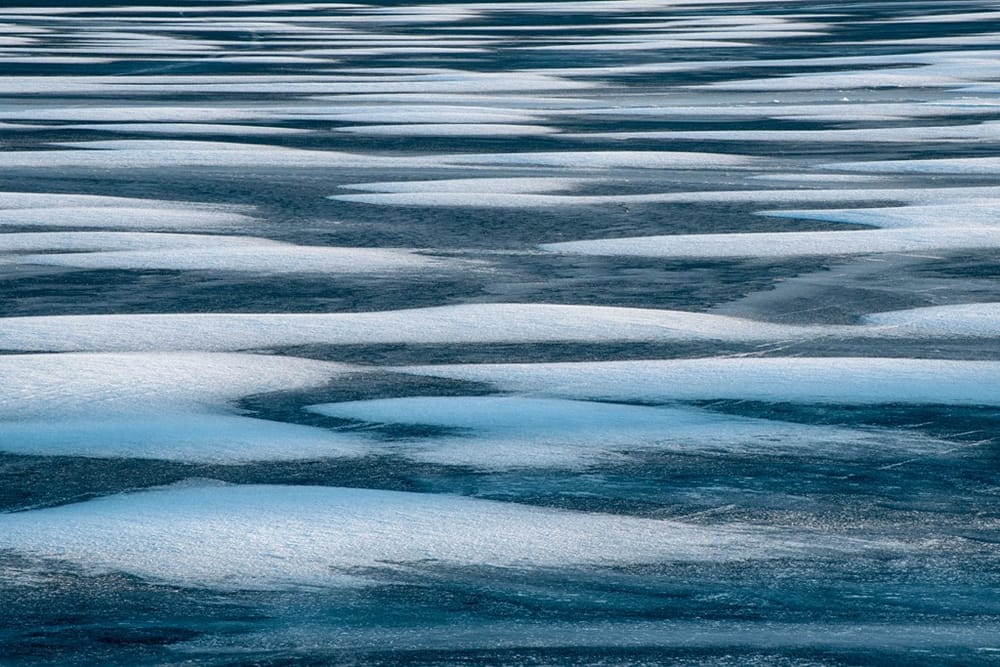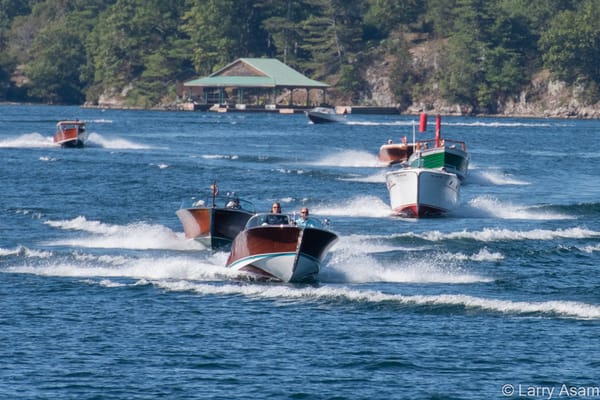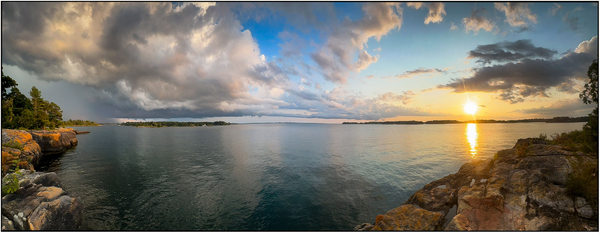Depth of Field: The Story Behind the Image “Frozen River”
by: Chris Murray
Written by Chris Murray posted on January 13, 2019 12:39
While this may appear at first glimpse to be a very simple and straightforward photo, there were three deliberate decisions that went into making the final image.

As is typical, the first key decision had to do with composition. My first version of this scene was shot with a wider-angle lens that included the islands and some of the sky in the distance. I quickly realized that including the distant background made the photo weaker, by detracting from the element of interest, which was the pattern created by the bands of ice and snow. This was an example of subtraction by addition and a lesson in filling the frame with only the pertinent elements of the scene. Ultimately, I decided to use a longer focal length, focusing only on the alternating bands of ice and snow and excluding the distant background of islands and sky.
As I was photographing the scene, with a moderately strong telephoto focal length of 240mm at an angle looking across the ice, I realized I would need to employ focus stacking to get the entire scene sharp and in focus. Depth of field (how much of the scene is in focus from front to back) decreases with longer focal lengths for any give aperture. Given the focal length and angle it was impossible to have sharp focus throughout, with one exposure, even with my smallest aperture. I combined three exposures (varying only the focus distance) in a focus stack, to achieve the desired depth of field.
The third (and perhaps controversial) decision was in changing the color of the image. I captured the scene at sunrise; consequently, the ice and snow were bathed in warmer hues. This was in conflict with the feeling I wanted to convey. Generally, when we think of snow and ice, we imagine cold. I altered the white balance after the fact to make the final image appear much more blue than it really did. When I mentioned this to someone who liked the image they immediately pressed their hands to their ears saying, “Don’t tell me that!”, as if altering reality tainted the image somehow. As I’ve said before, my intent is not to document literal appearances, but rather express creatively my thoughts and feelings about the subject.
By Chris Murray
Chris Murray is a full-time photographer, instructor, and writer. His work has appeared in several magazines including Popular Photography, Shutterbug, Adirondack Life, Life in the Finger Lakes, and New York State Conservationist, among others. He is a staff instructor with the Adirondack Photography Institute. API’s 2019 workshop schedule is now available at www.adkpi.org. For more of Chris’ work visit www.chrismurrayphotography.com.




